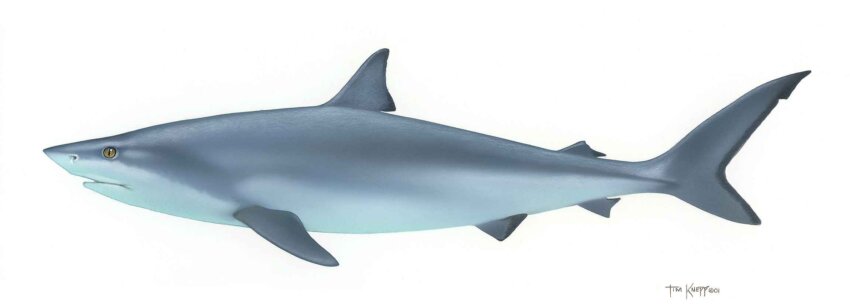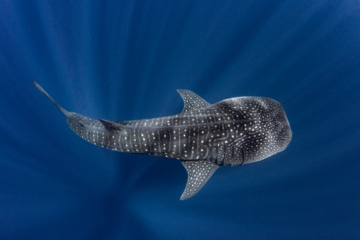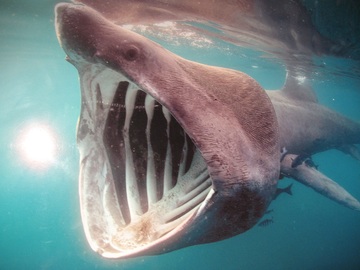As ancient as dinosaurs, sharks have been fascinating predators swimming in earth’s water bodies for over 400 years. All these years, sharks have adapted to cope with the earth’s changing ecology.
Sharks have adapted to the point where their body temperature is cold rather than warm. The cold temperature matched the temperature of the water, allowing them to thrive deep in the ocean.
Because sharks are cold-blooded, their body temperature is affected by their surroundings. In other words, their body temperature is highly variable and changes with the outside weather.
Higher body metabolism is the primary determinant of body temperature. Our high metabolism enables us to maintain a constant (warm) body temperature. On the other hand, Sharks have a slow metabolism and can go for days without eating. They evolved in this manner because they do not require fixed, warm bodies.

Are all sharks cold-blooded?
Most fish are completely cold-blooded. So, this begs the question of whether sharks, like fish, are also cold-blooded.
Most sharks, but not all, have cold blood. However, five shark species defy the norm and are warm-blooded. Their names are listed below.
- The great white shark
- Shortfin Sharks called makos
- Longfin Sharks called makos
- Porbeagle
- Salmon sharks (the warmest shark species)
In other words, rather than being ectothermic, the five shark species mentioned above are endothermic. Meanwhile, cold-blooded or ectothermic sharks cannot raise their body temperature above their surroundings. Their surroundings, on the other hand, regulate their body heat.
How do sharks stay warm?
Most sharks are cold-blooded, with bodies at the same temperature as the water in which they live. This, however, is not true for all shark species.
Mackerel sharks, including shortfin makos and great whites, can regulate their body temperature. These sharks can keep themselves warm by generating heat while swimming. Keep in mind that these sharks must never stop swimming, or they will become cold and sink.
As these sharks swim, their bodies create heat, which raises their RM temperature. This, in turn, warms up the sharks’ surrounding white muscle tissue, allowing them to stay warm even in the coldest pockets beneath the sea surface.
Do warm-blooded sharks swim at a higher speed?
Sharks are apex predators known for their speed and agility in the water. Do sharks with warm blood, on the other hand, swim faster? Let’s go exploring.
Warm-blooded sharks can move more quickly underwater because of their temperature-controlling biological process. According to experts, sharks with warmer body temperatures can swim 1.6x faster (approx.) than those with cold blood.
These fish are thought to be capable of retaining heat produced by biomechanism via vascular counterflow heat exchangers. This, in turn, warms up the living tissue, resulting in faster movement.
When heat is applied, metabolic reactions accelerate. Hence, due to their higher core body temperature, hot-blooded sharks are more energetic and faster than cold-blooded sharks.
Are whale sharks cold-blooded?

Whale sharks are enormous. These are the world’s largest sharks or fish at the moment. So are these filter-feeding sharks frigid?
Whale sharks, although sharks are not entirely cold-blooded. They are better known as lukewarm-blooded or gigantotherms. Whale sharks are so large that it takes them an eternity to cool down or warm up totally, according to experts.
Experts discovered that whale sharks, unlike other cold-blooded sharks, can effectively regulate their body temperature. These sharks have thermal inertia, which prevents them from lowering their body temperature below 19 degrees Celsius (as per the research).
Are tiger sharks cold-blooded?
Tiger sharks are one of three ferocious shark species. They are notorious for striking unexpectedly. So, can we label them as cold-blooded assailants?
Tiger sharks are, indeed, cold-blooded. In other words, they are ectothermic, meaning they depend completely on their surroundings to control their body temp.
Because these sharks prefer to stay in cooler waters, they prefer to migrate north as the earth’s temperature rises. As a result, tiger sharks are literally “cold-blooded.”
Are bull sharks cold-blooded?
Bull sharks, according to experts, are the most aggressive sharks on the planet. They are active carnivores with a history of attacking.
Bull sharks, like most other sharks, have cold blood. This means that bull sharks cannot regulate or stabilize their body temperature and their body temperature relies on their surroundings.
Are goblin sharks cold-blooded?
One of the weirdest looking sharks out there is the goblin shark. These are also known as the living fossils on earth.
Like most other sharks, experts believe that goblin sharks are also cold-blooded. Goblin sharks are deep-sea sharks and are quite rare. They are a mysterious shale species about whom not much is known.
Are Greenland sharks cold-blooded?
Greenland sharks get their name from their habitat close to Greenland. Counted among the largest sharks in the world, exploring if these are cold-blooded sharks would be intriguing.
Greenland sharks have extremely cold blood. However, what is fascinating about Greenland sharks is that they prosper in cold water. These sharks favor water temperatures ranging from -1 to 10°C.
In search of colder water, this shark species migrate further north. As a result, it is not incorrect to refer to these sharks as one of the “coldest-blooded” sharks on the planet.
Are basking sharks cold-blooded?

Much like whale sharks, basking sharks are also filter feeders. So, are these sharks cold-blooded?
Basking sharks are cold-blooded shark species. It means they cannot regulate their body temperature.
Are great white sharks cold-blooded?
Great white sharks are notorious for being opportunistic feeders, making them one of the most ferocious species. And thanks to popular culture, these sharks have gained even more notoriety.
Great white sharks, unlike most sharks, are partially warm-blooded or endotherms. It is one of only a few fish in this category. As a result, great whites can raise their body temperature above the temperature of their surroundings.
Great whites are blessed with the system of ‘counter-current heat exchange’. Because of this feature, they can keep their stomach temperature at least 10- 15º C warmer than the surrounding temperature.
Summary
Sharks can be classified as cold-blooded, warm-blooded, or partially warm-blooded. Sharks are fascinating, and so are their adaptations, lifestyle, and diet. We hope you enjoyed our post and found it useful in expanding your knowledge. If you enjoyed it, please share it with your friends and family.





